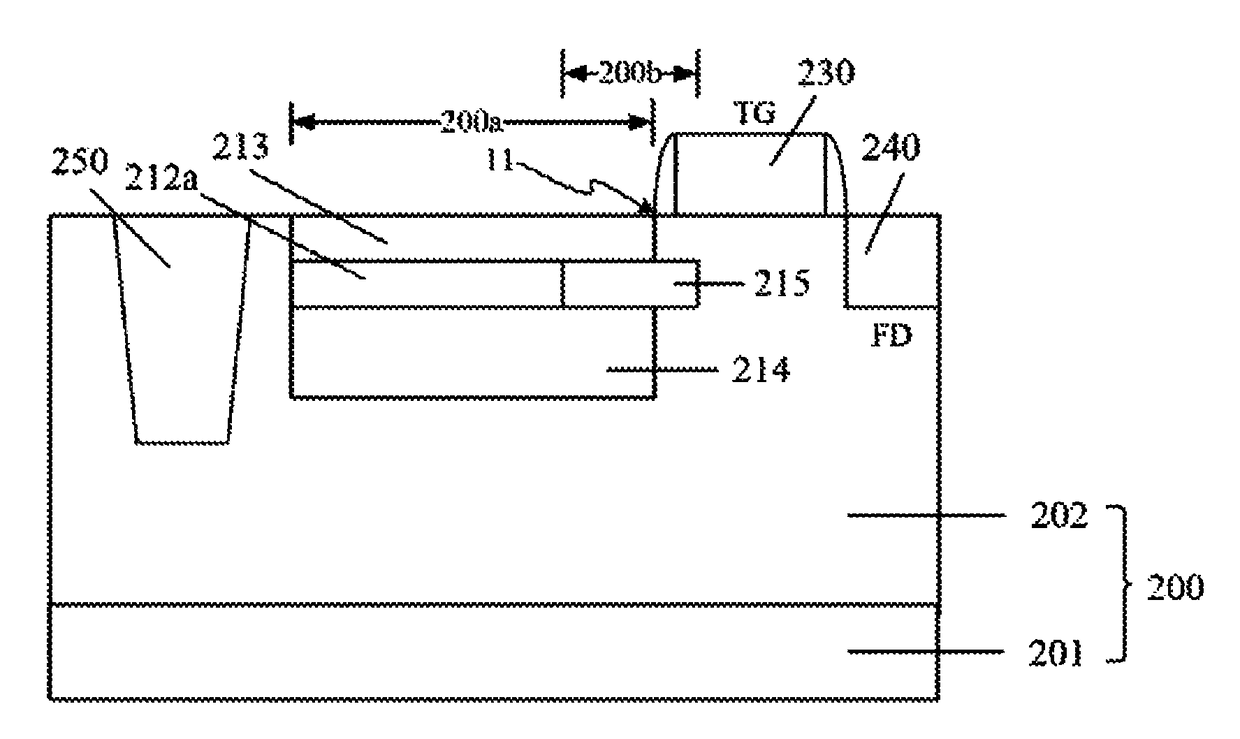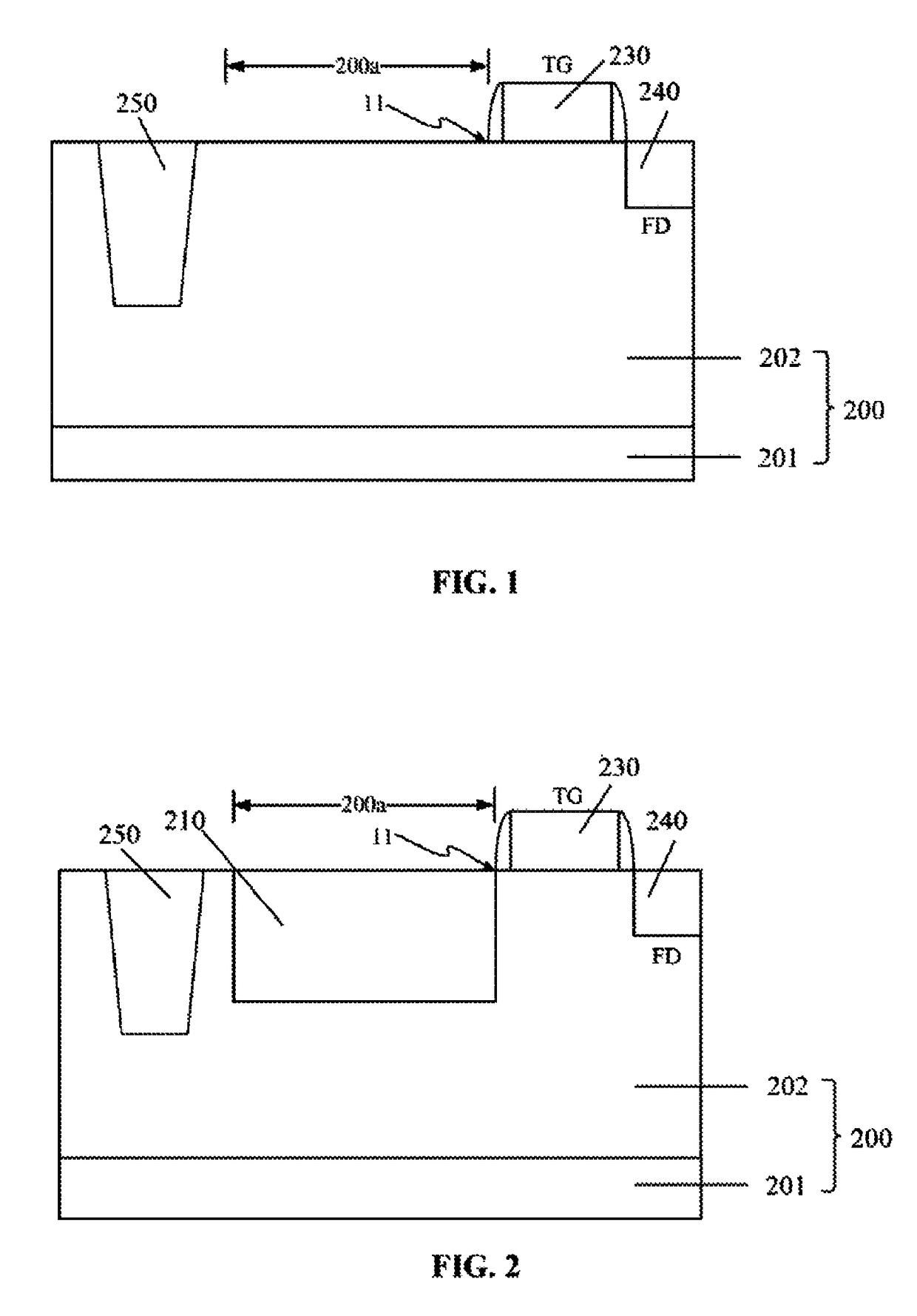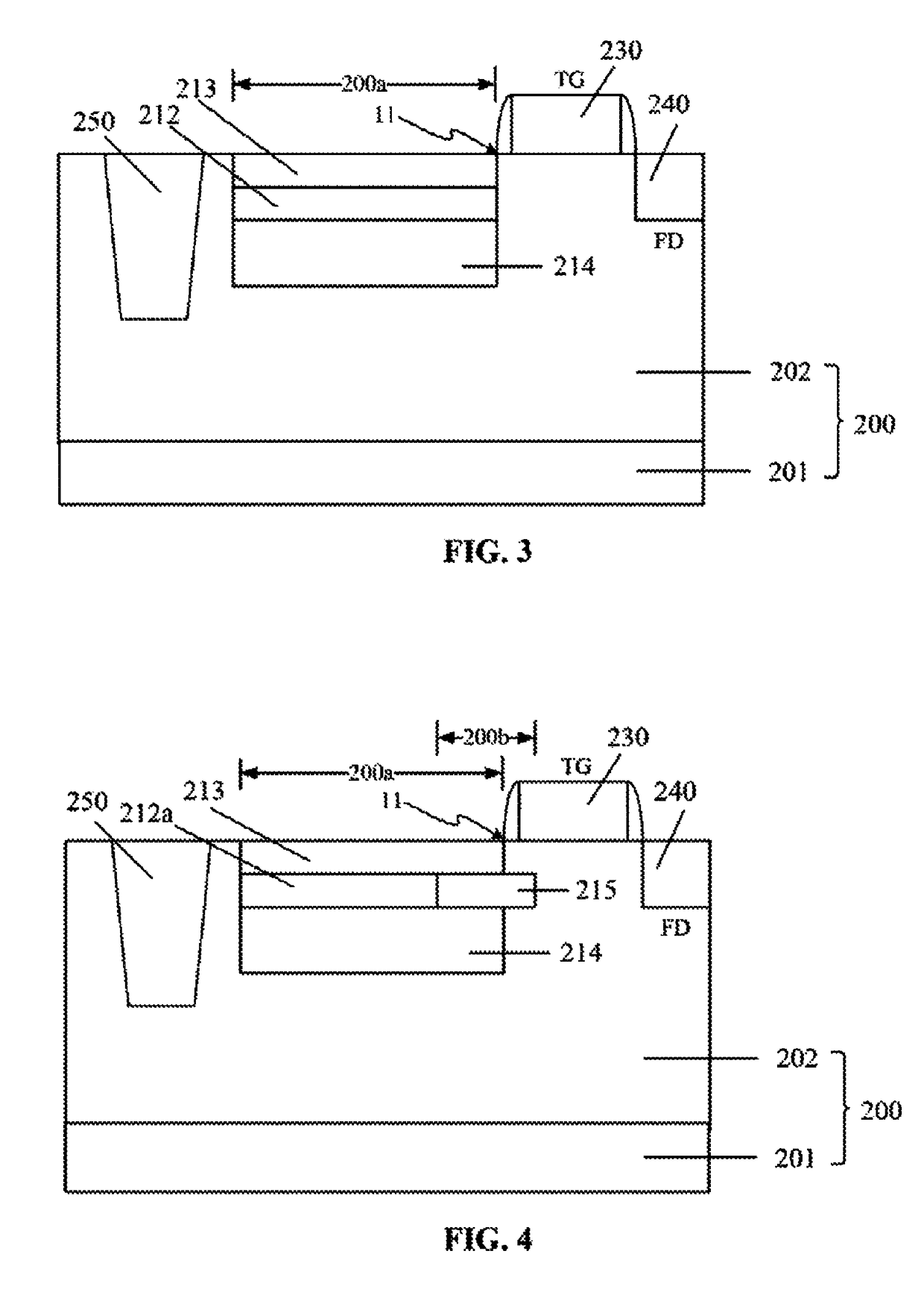CMOS image sensor and fabrication method thereof
a cmos image sensor and image technology, applied in the field of semiconductor device manufacturing, can solve the problems of low transport efficiency, design of pixel units of high-speed cmos image sensors, and inability to transport only signal charges
- Summary
- Abstract
- Description
- Claims
- Application Information
AI Technical Summary
Benefits of technology
Problems solved by technology
Method used
Image
Examples
Embodiment Construction
[0013]Reference will now be made in detail to exemplary embodiments of the invention, which are illustrated in the accompanying drawings. Wherever possible, the same reference numbers will be used throughout the drawings to refer to the same or like parts.
[0014]FIG. 7 illustrates an exemplary fabrication process of a CMOS transistor consistent with the disclosed embodiments; and FIGS. 1-6 illustrate semiconductor structures corresponding to certain stages of the exemplary fabrication process.
[0015]As shown in FIG. 7, at the beginning of fabrication process, a substrate with certain structures is provided (S101). FIG. 1 illustrates a corresponding semiconductor structure.
[0016]As shown in FIG. 1, a substrate 200 is provided. The substrate 200 may include a base substrate 201 and an epitaxial layer 202. The epitaxial layer 202 is formed on a surface of the base substrate 201.
[0017]The epitaxial layer 202 may have a first conductive type (or doping type). Further, the epitaxial layer 2...
PUM
 Login to View More
Login to View More Abstract
Description
Claims
Application Information
 Login to View More
Login to View More - R&D
- Intellectual Property
- Life Sciences
- Materials
- Tech Scout
- Unparalleled Data Quality
- Higher Quality Content
- 60% Fewer Hallucinations
Browse by: Latest US Patents, China's latest patents, Technical Efficacy Thesaurus, Application Domain, Technology Topic, Popular Technical Reports.
© 2025 PatSnap. All rights reserved.Legal|Privacy policy|Modern Slavery Act Transparency Statement|Sitemap|About US| Contact US: help@patsnap.com



